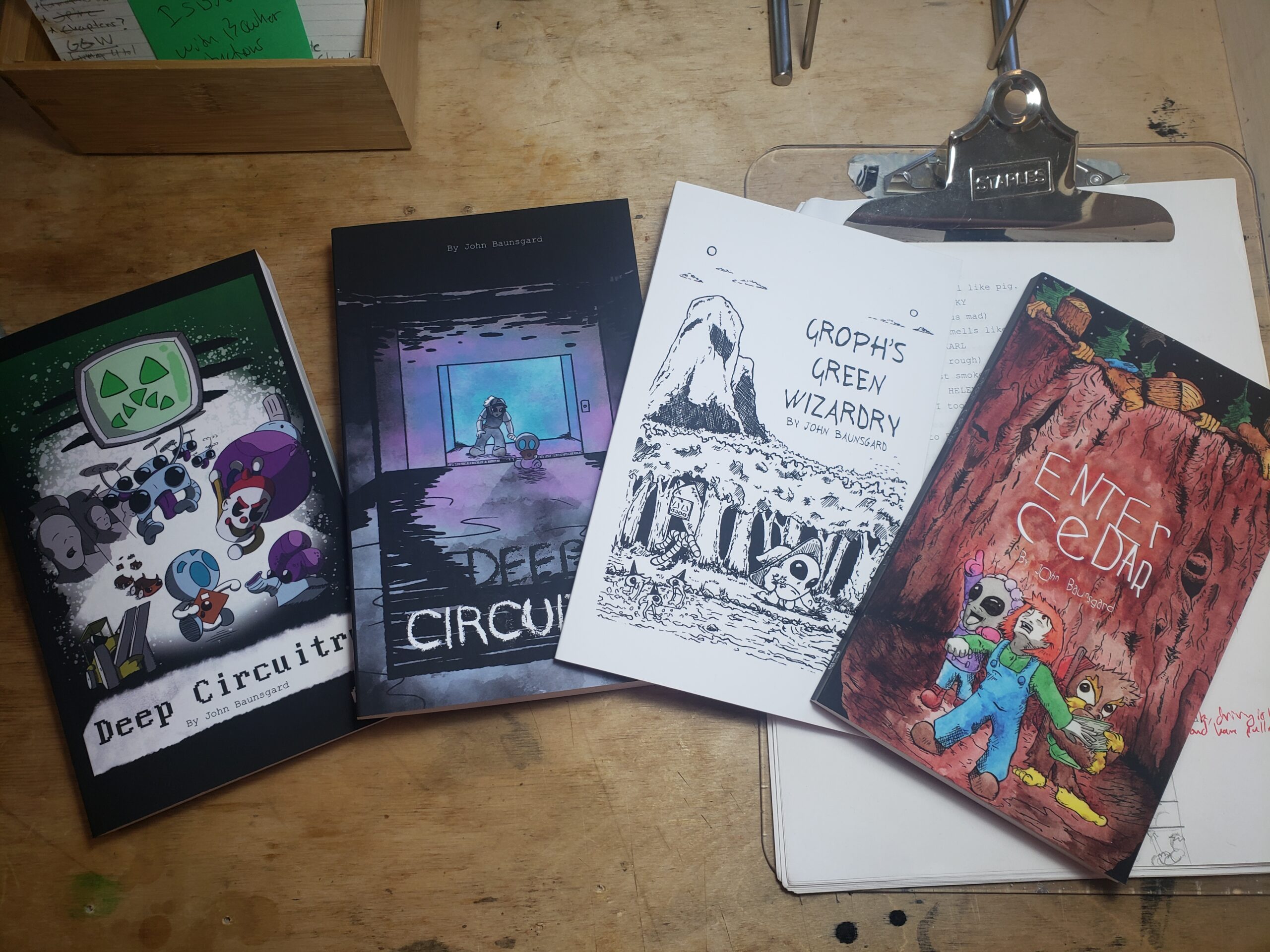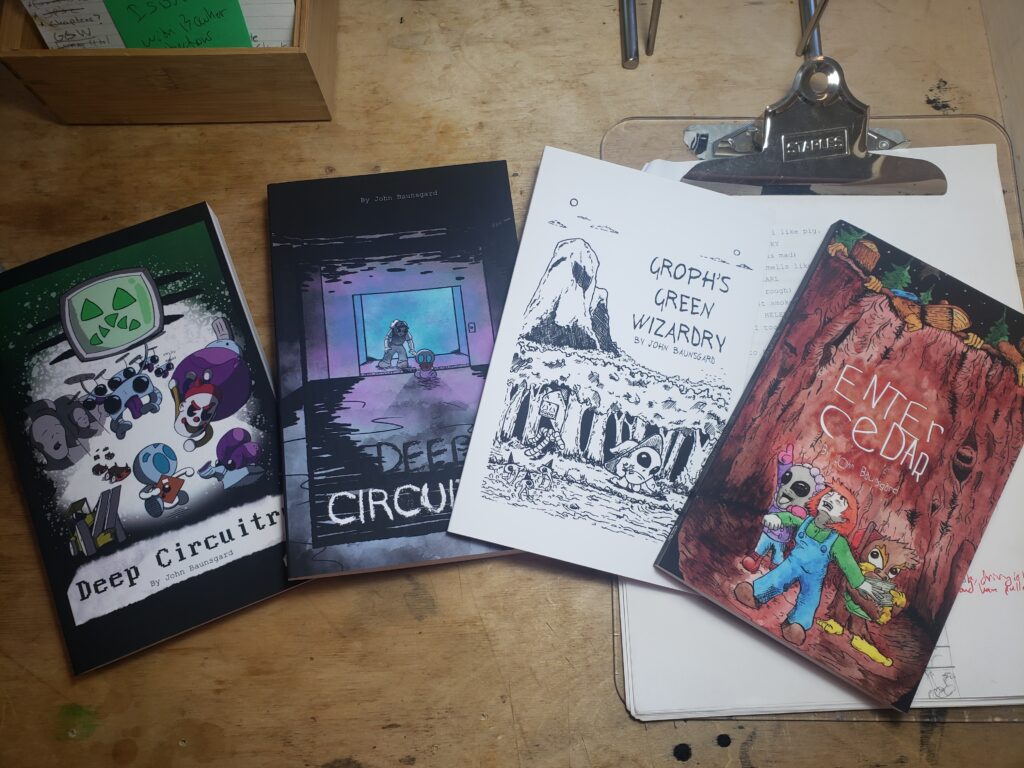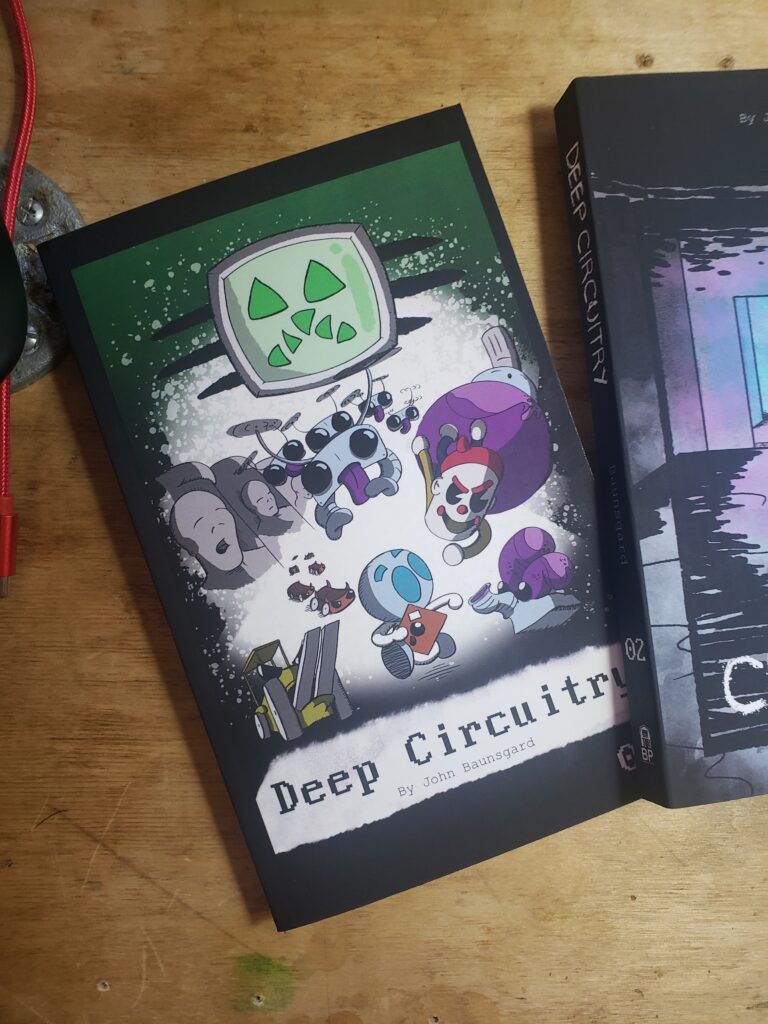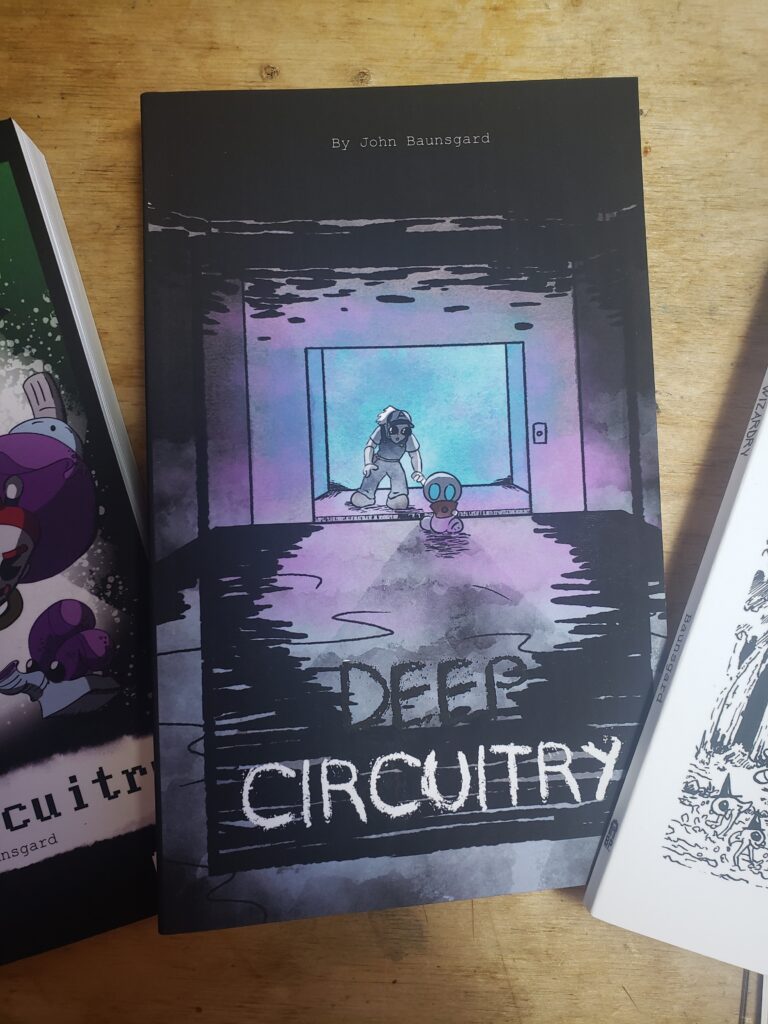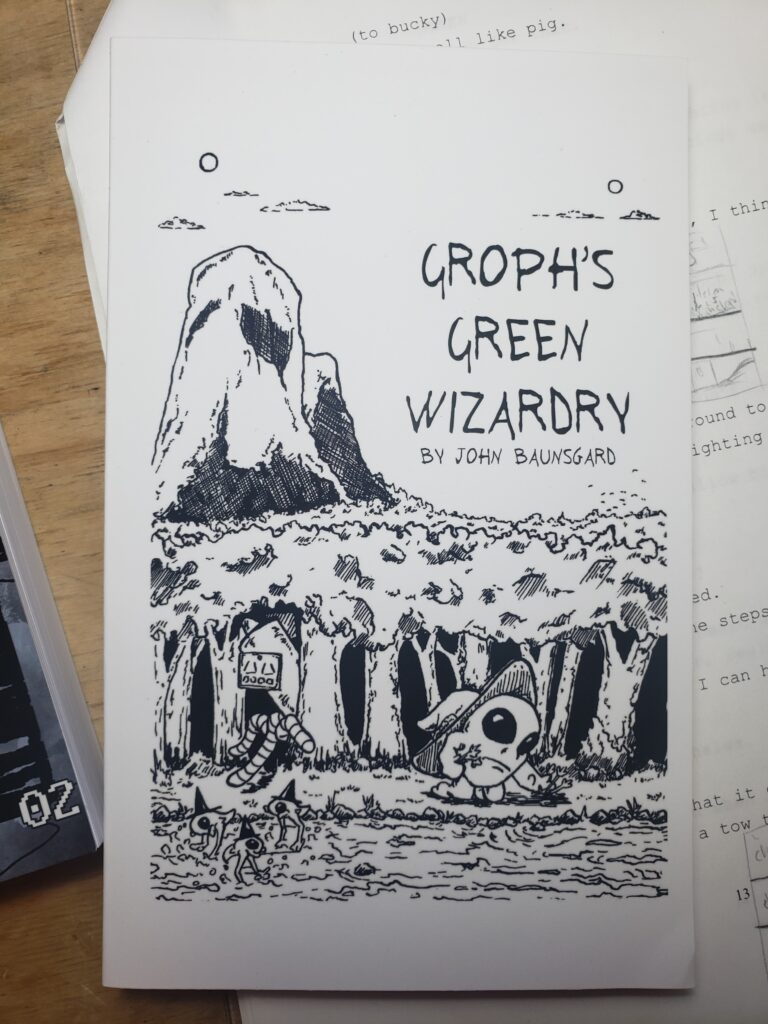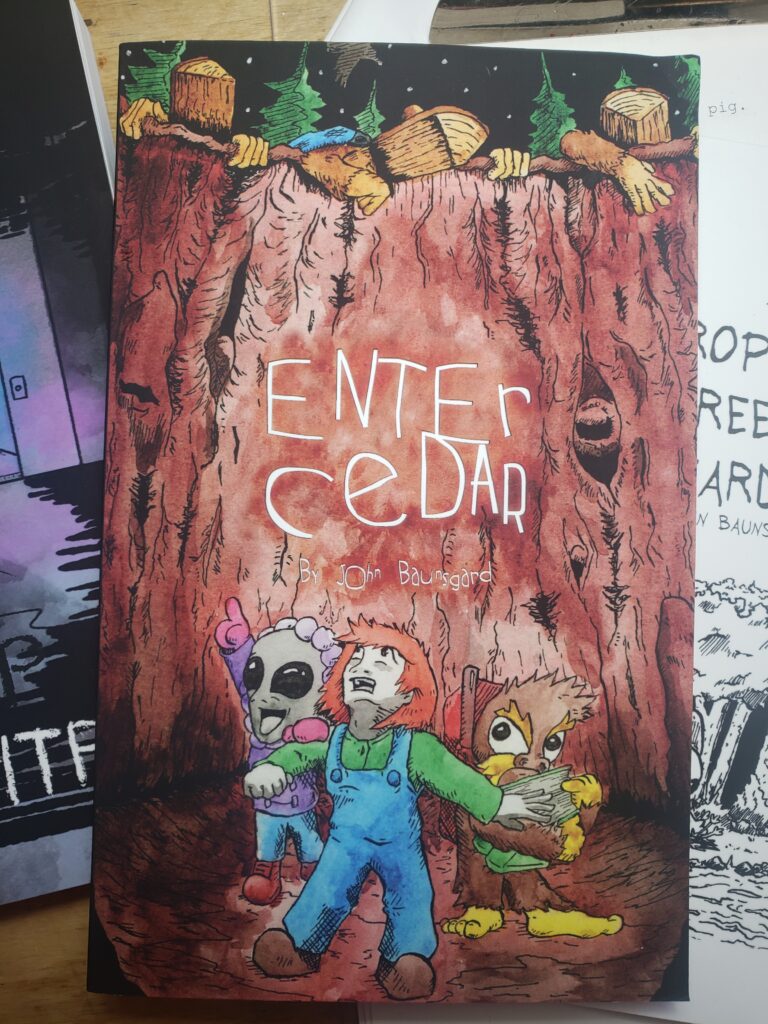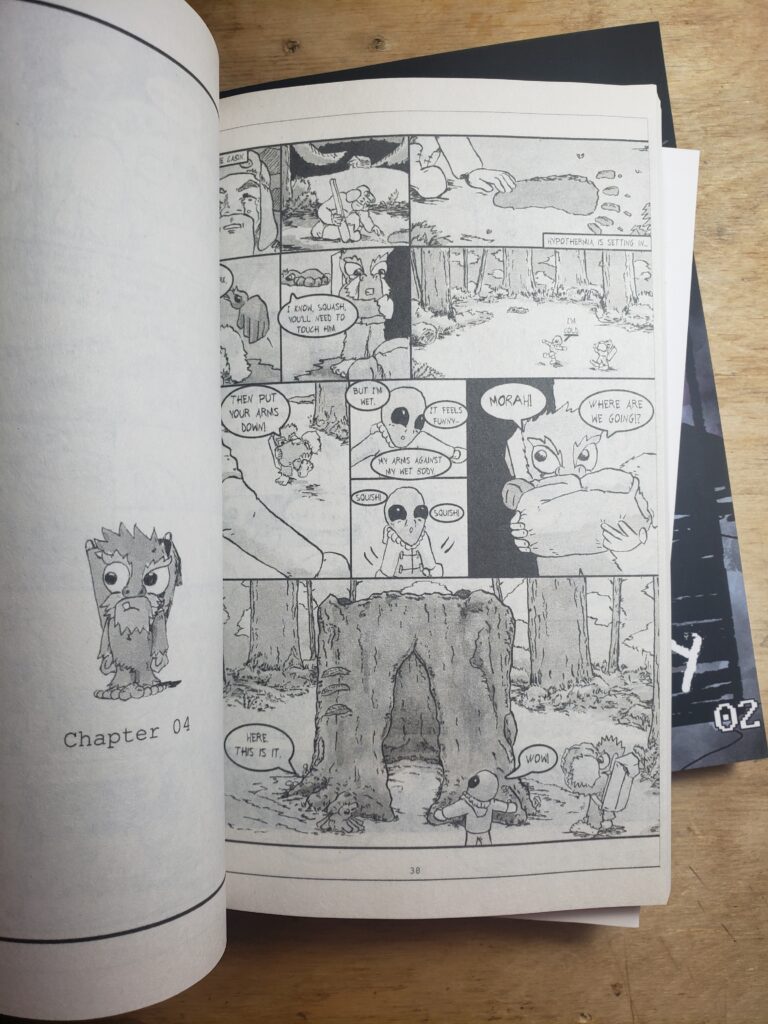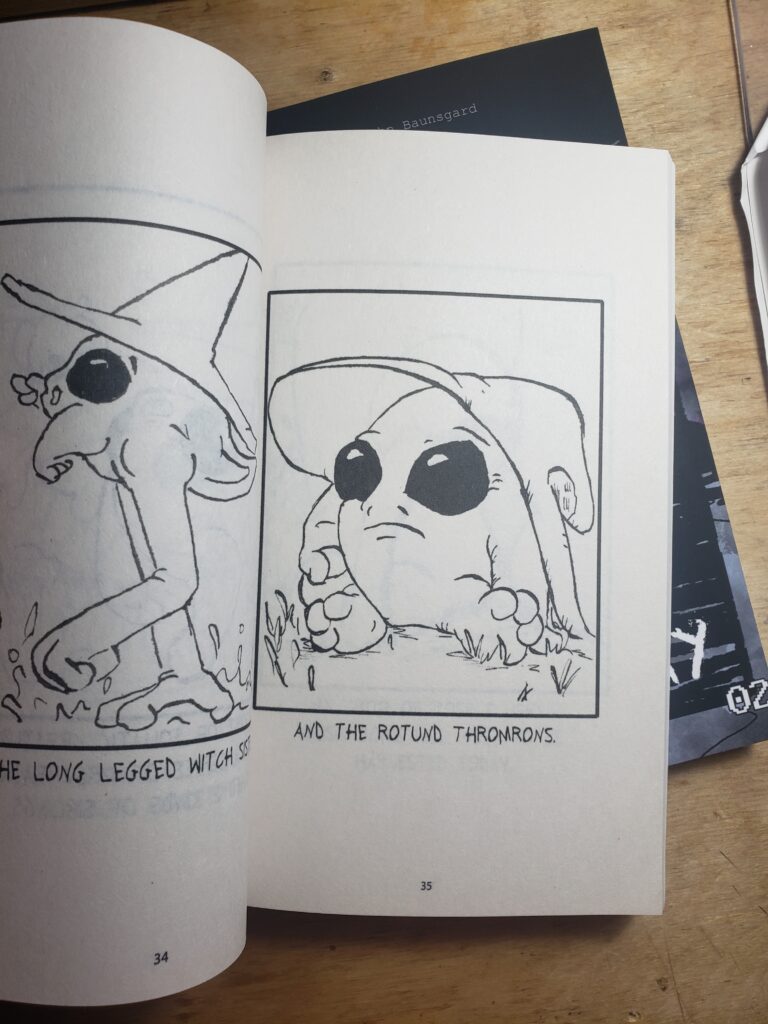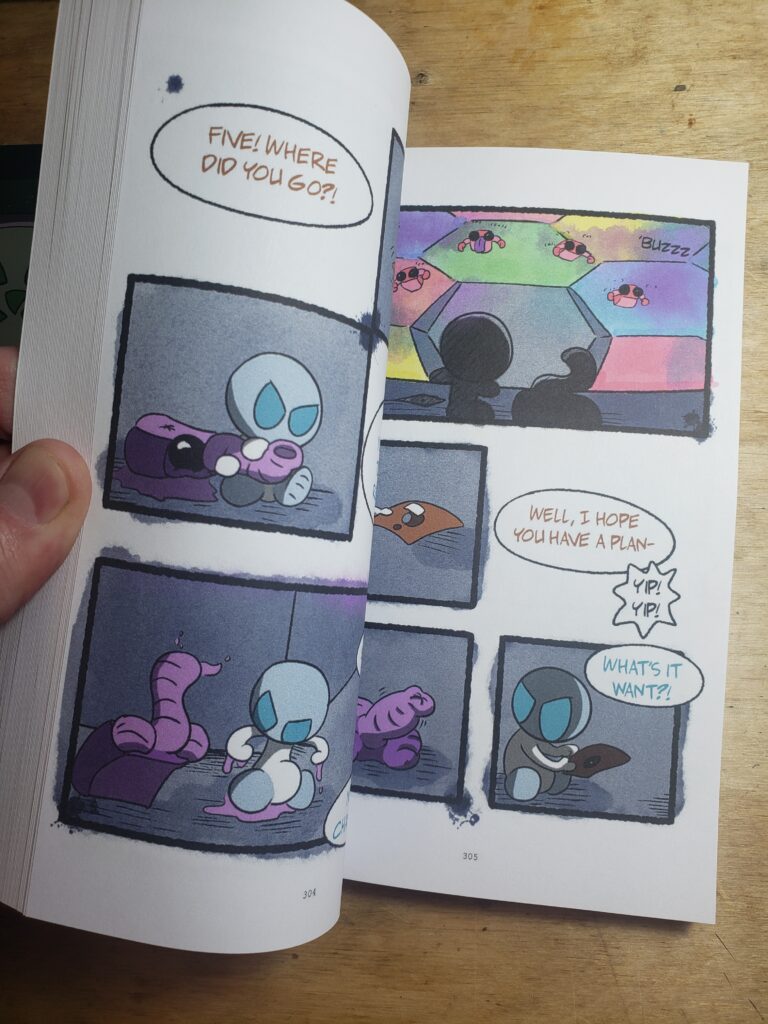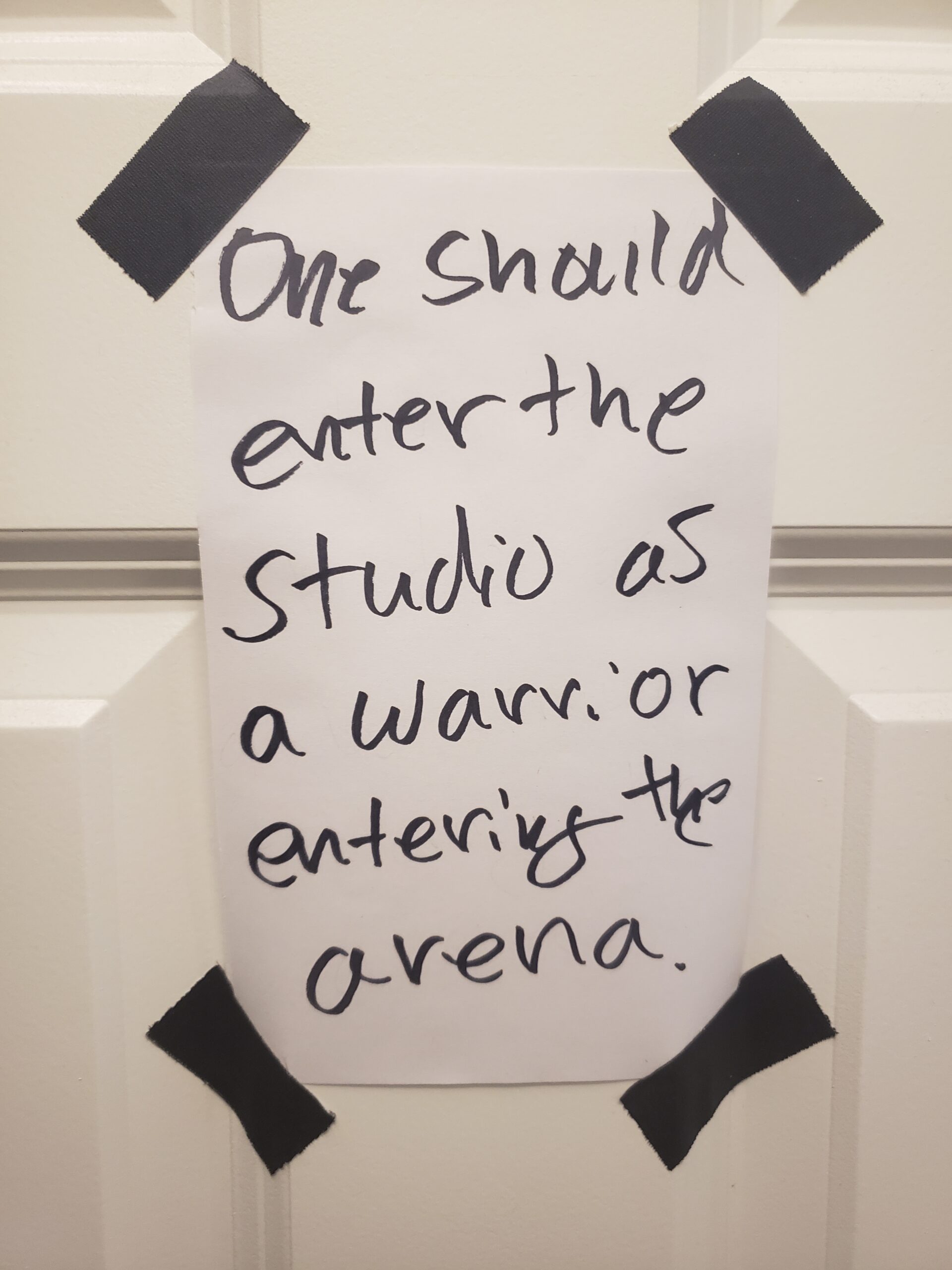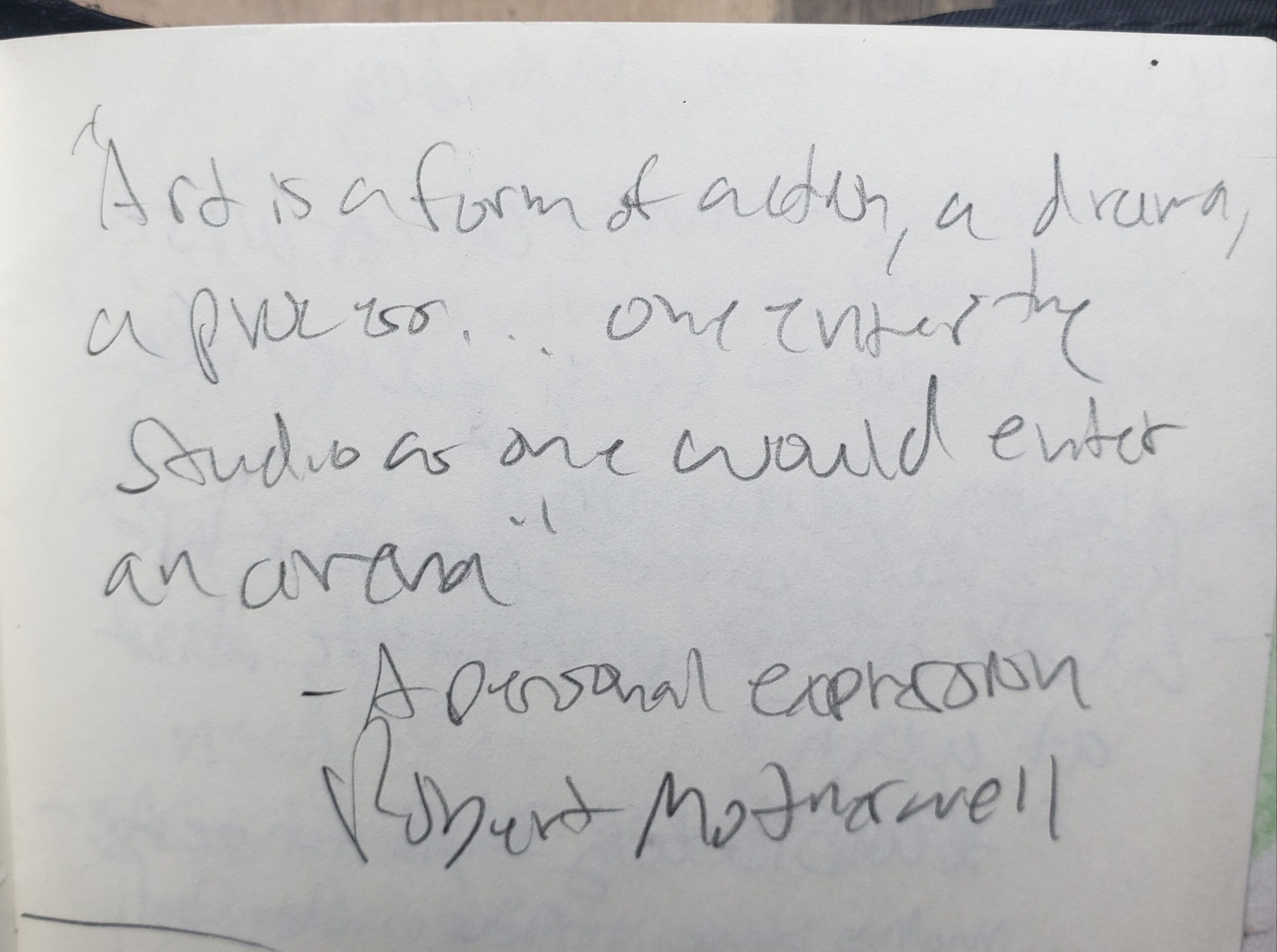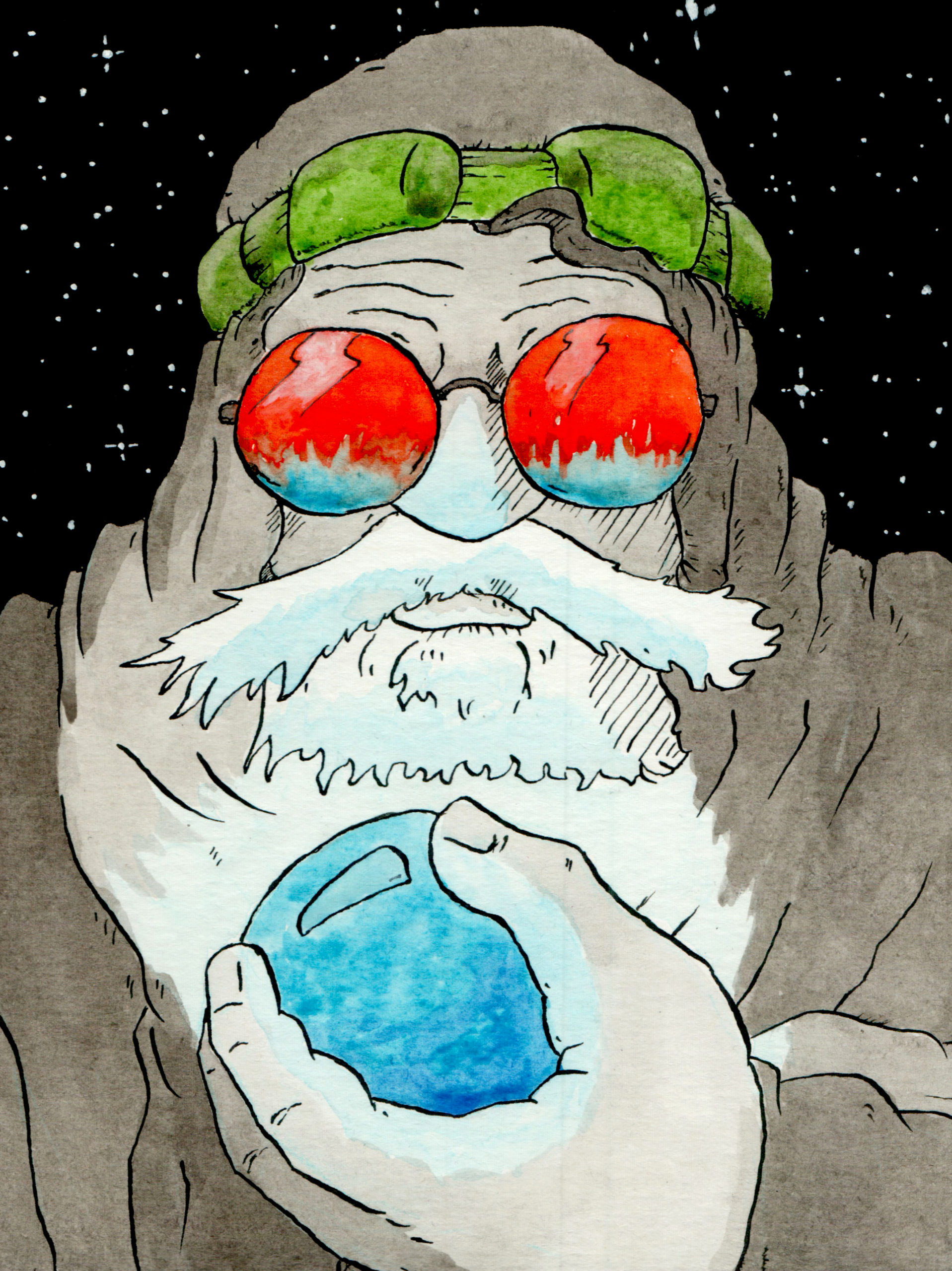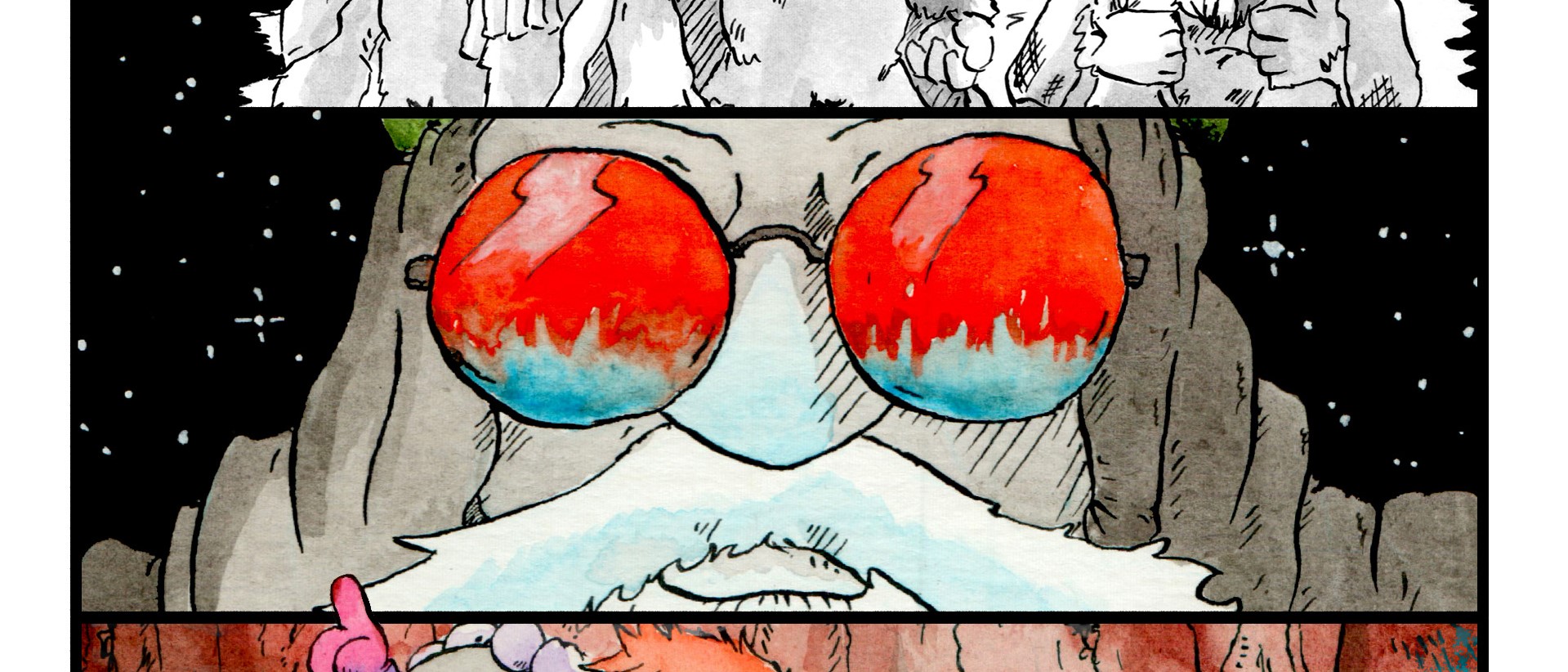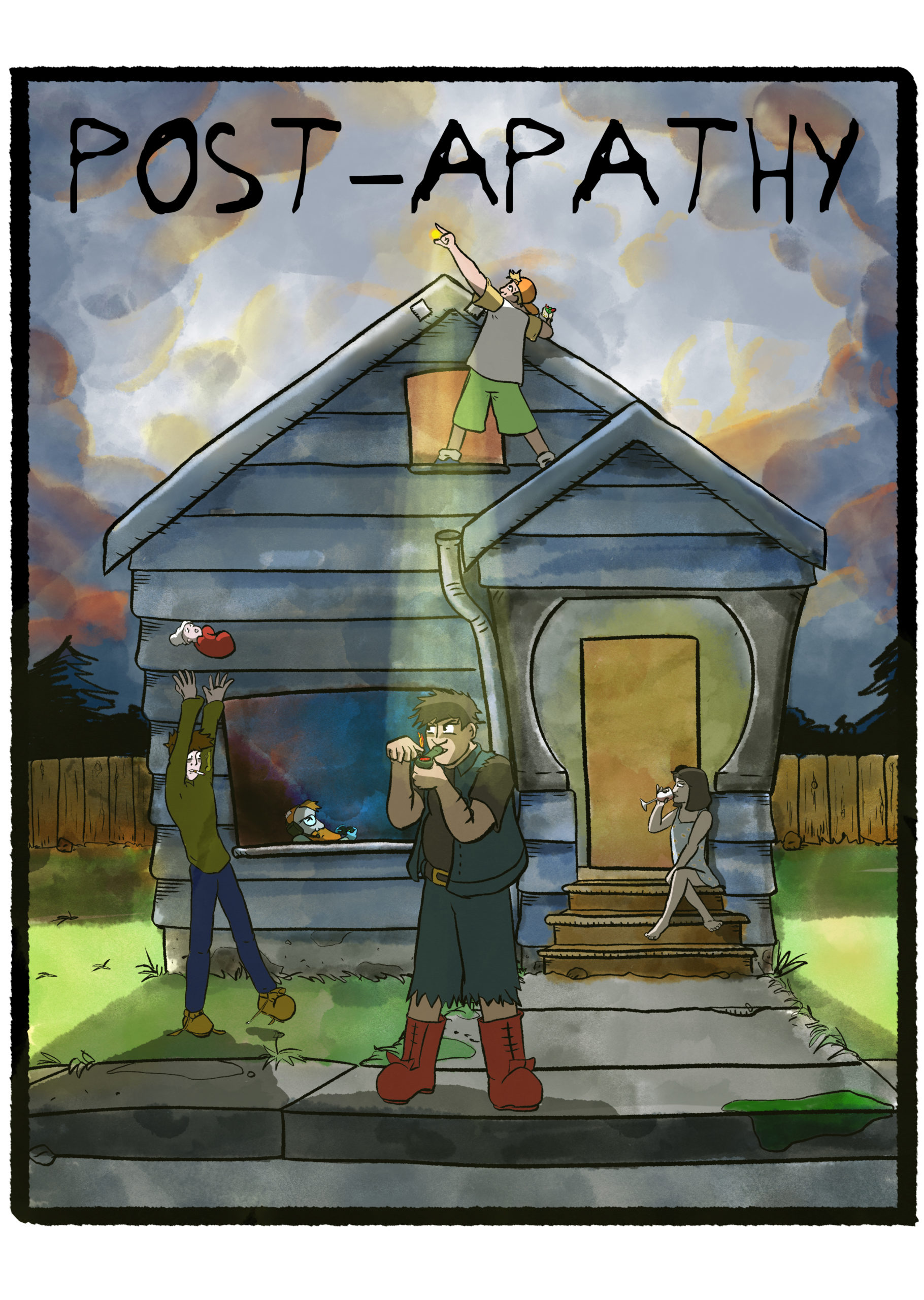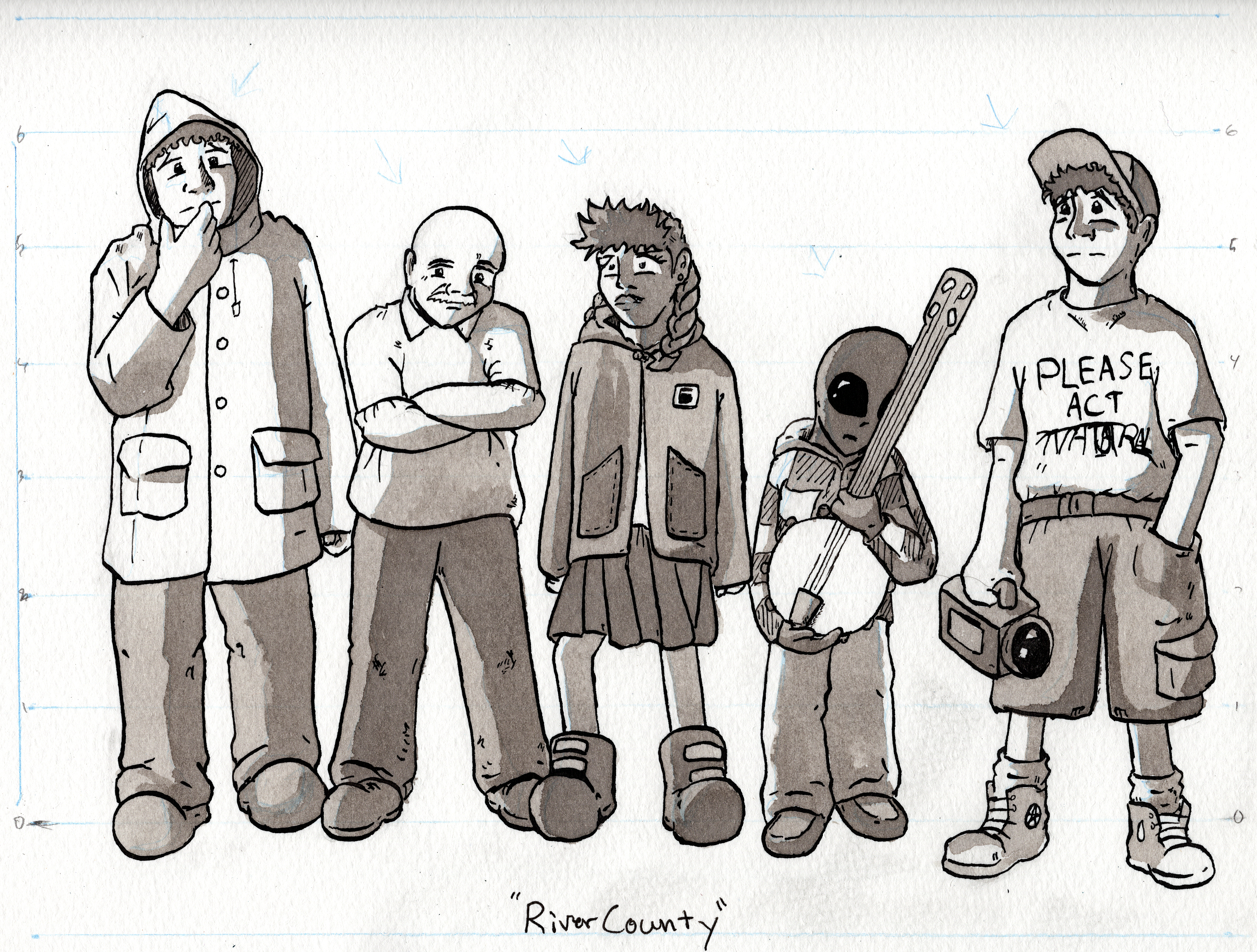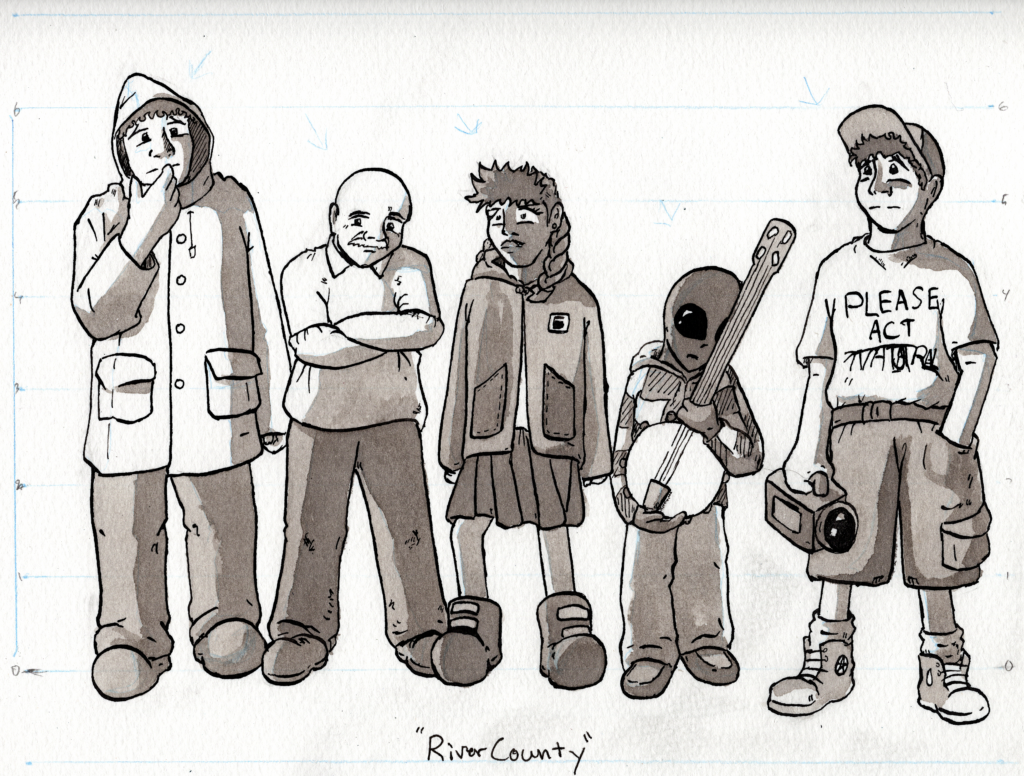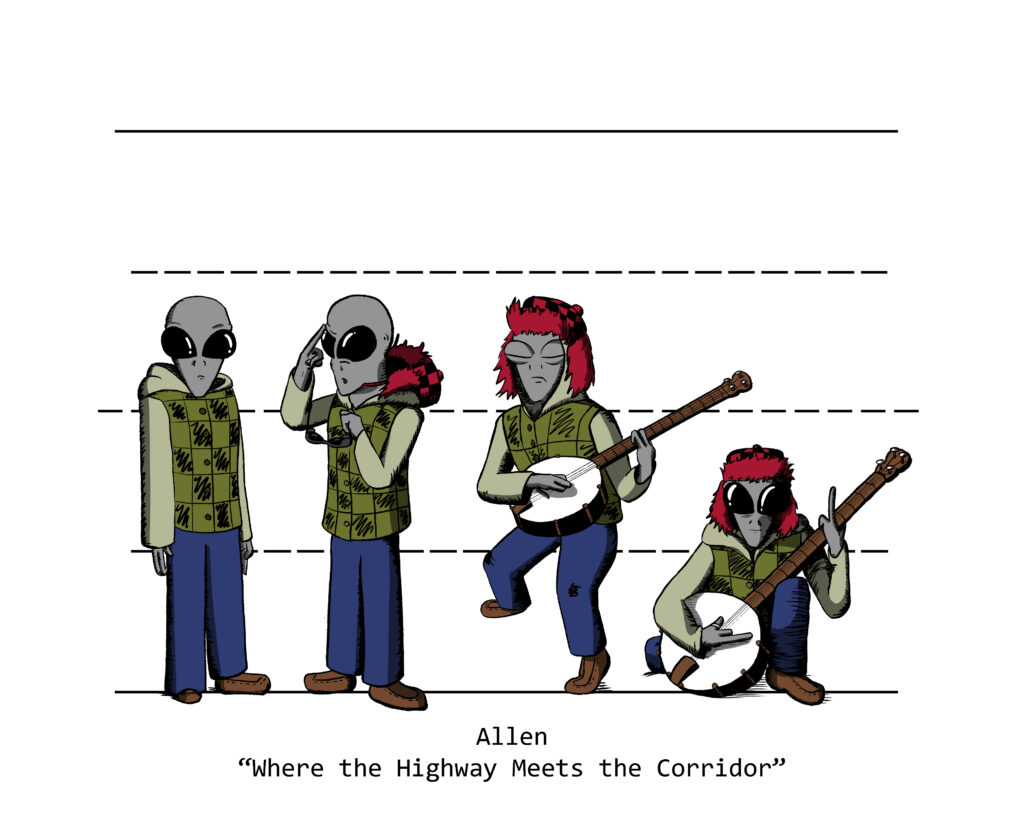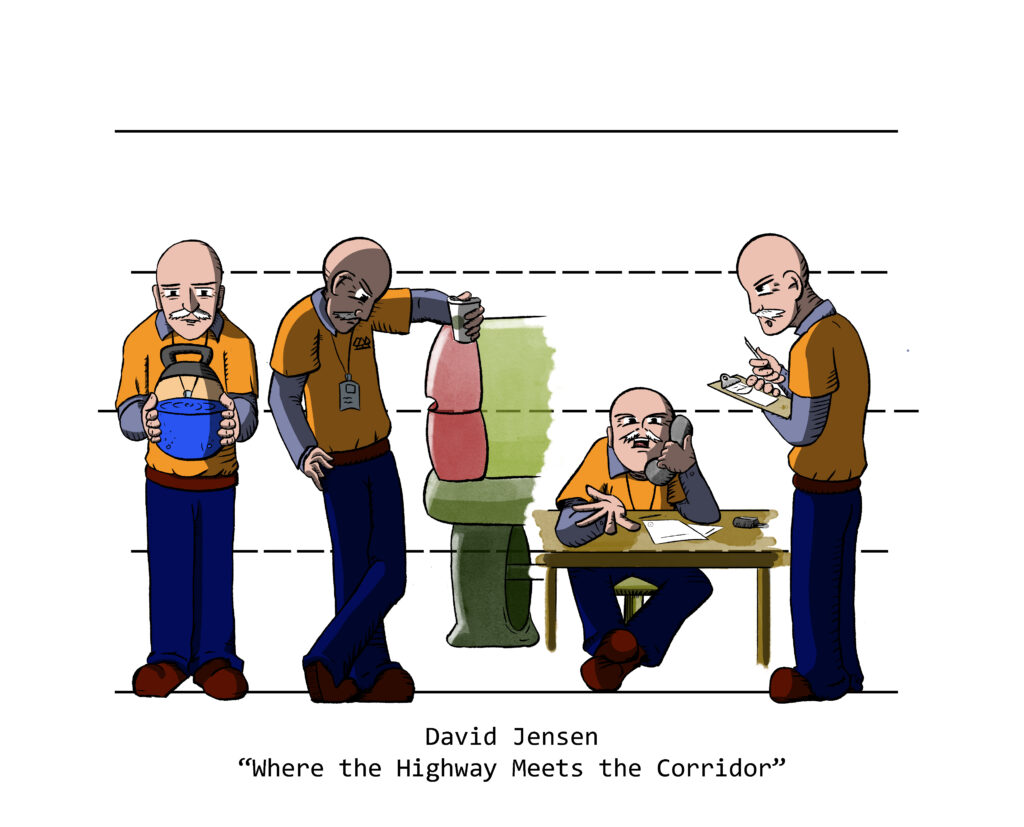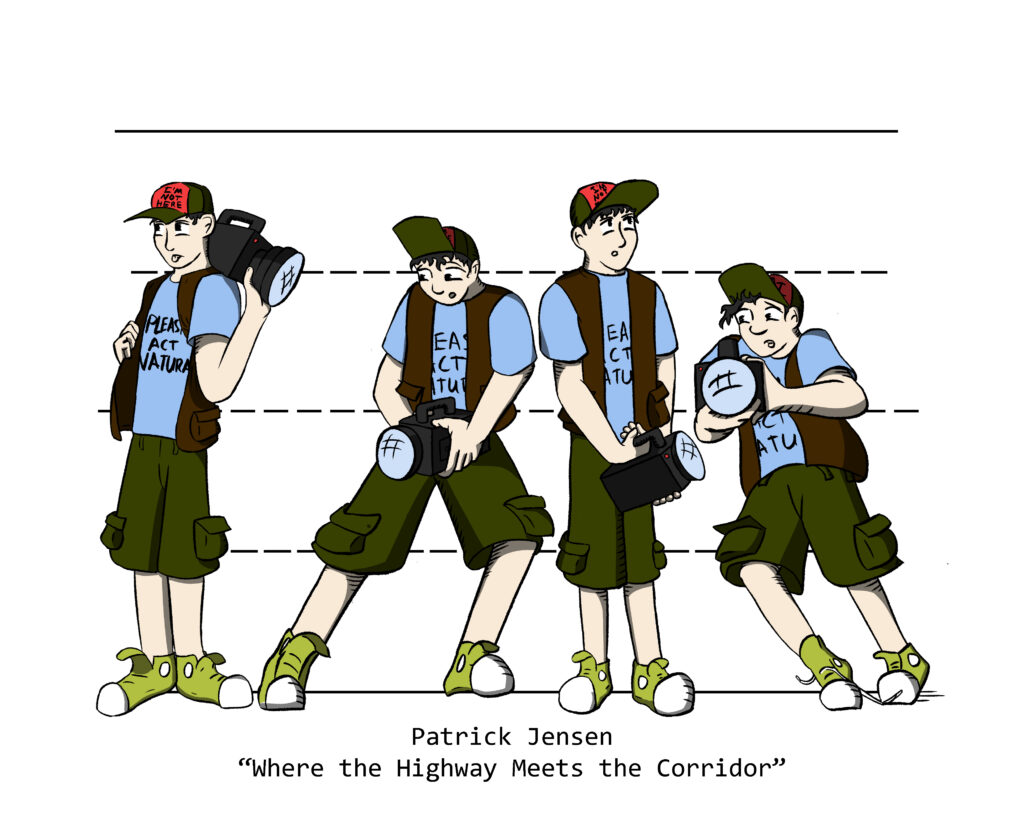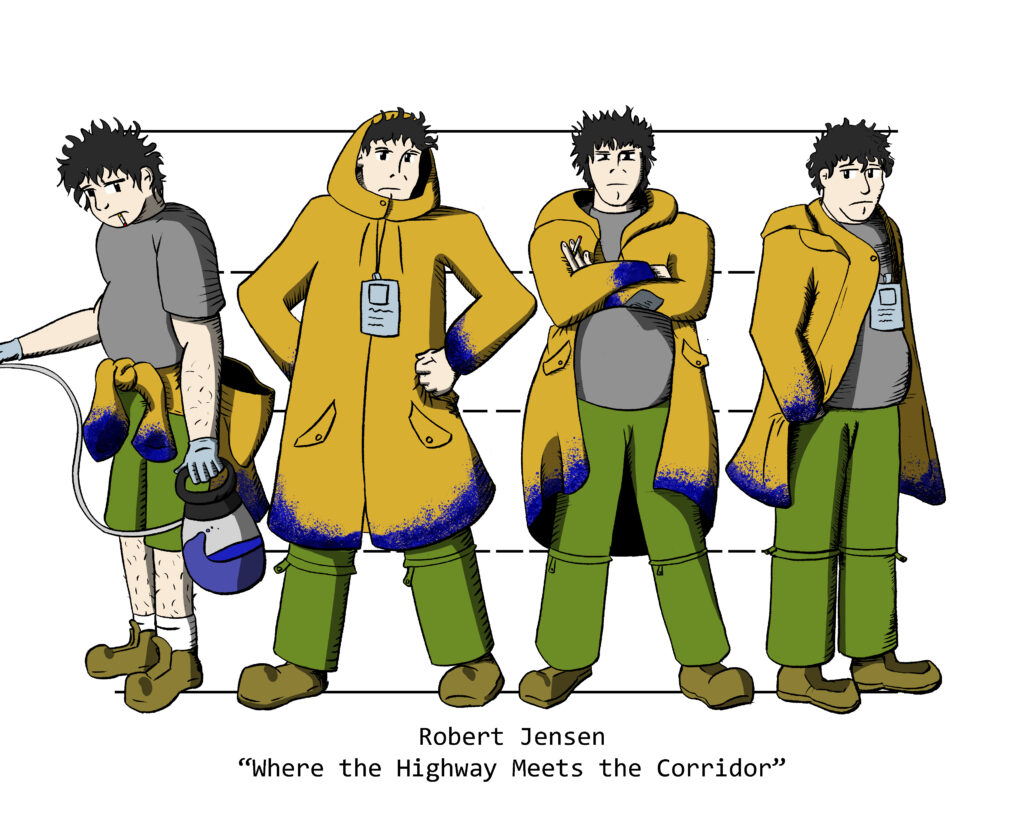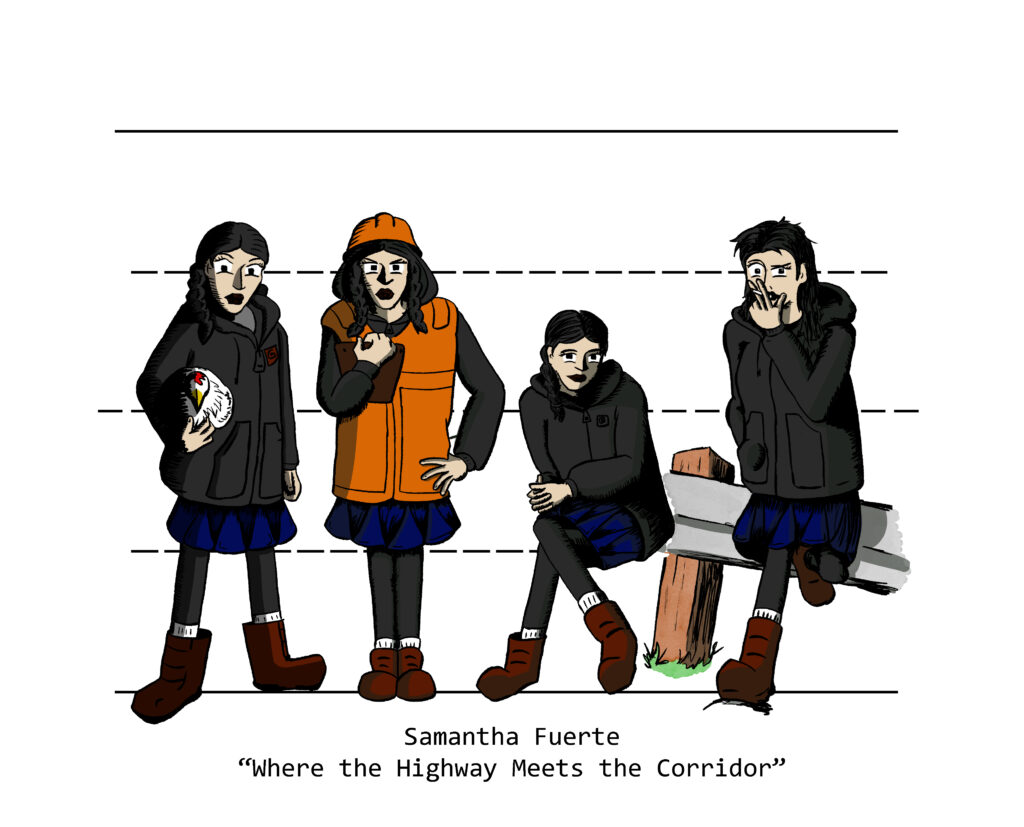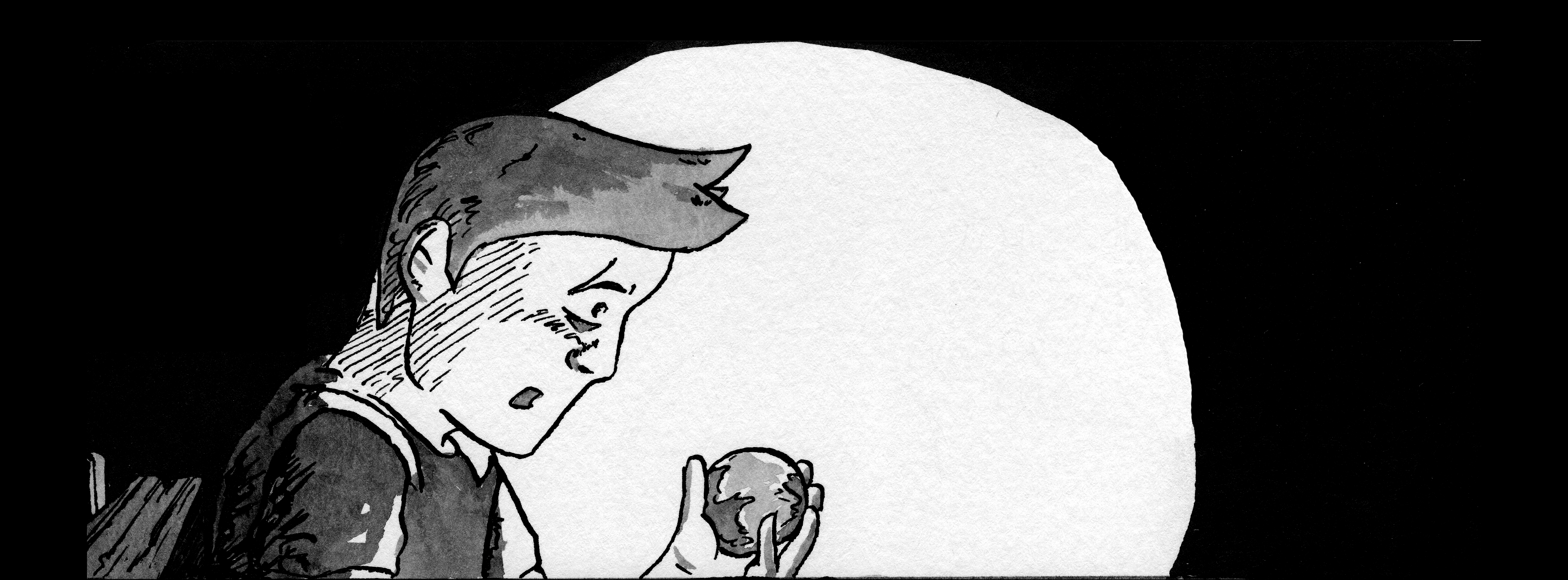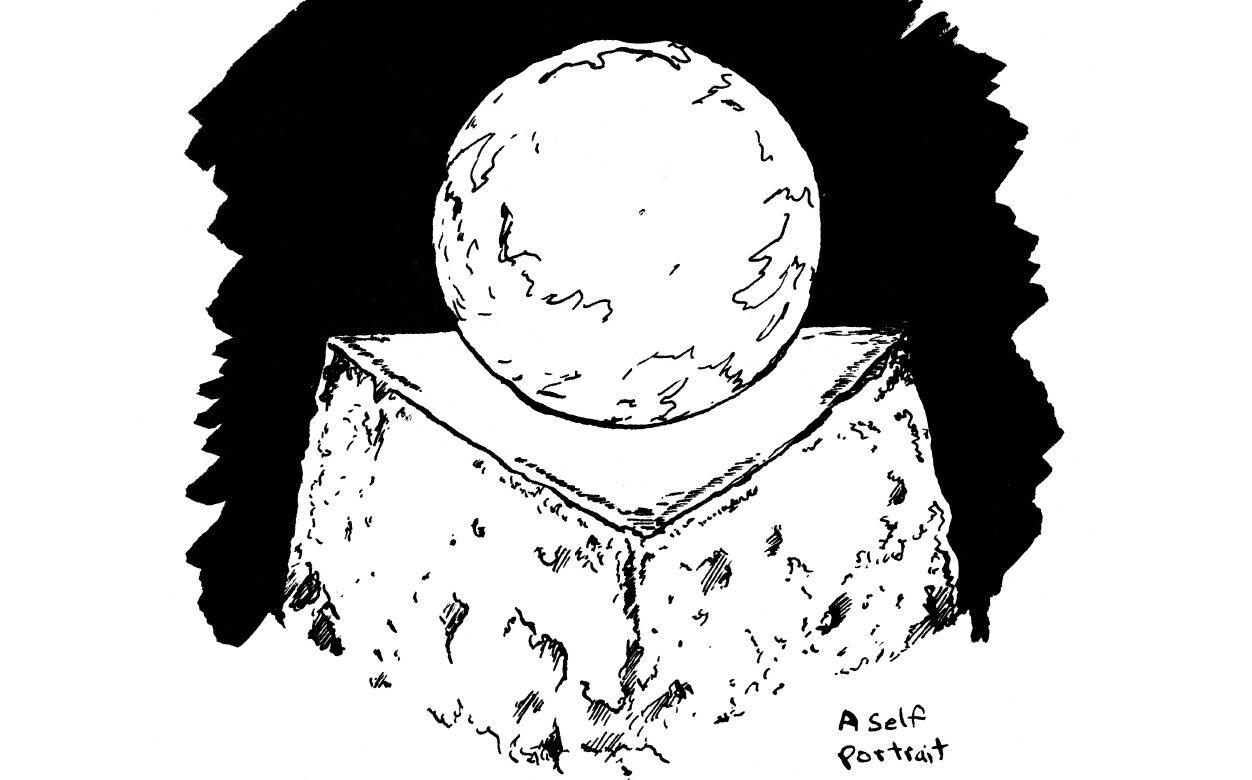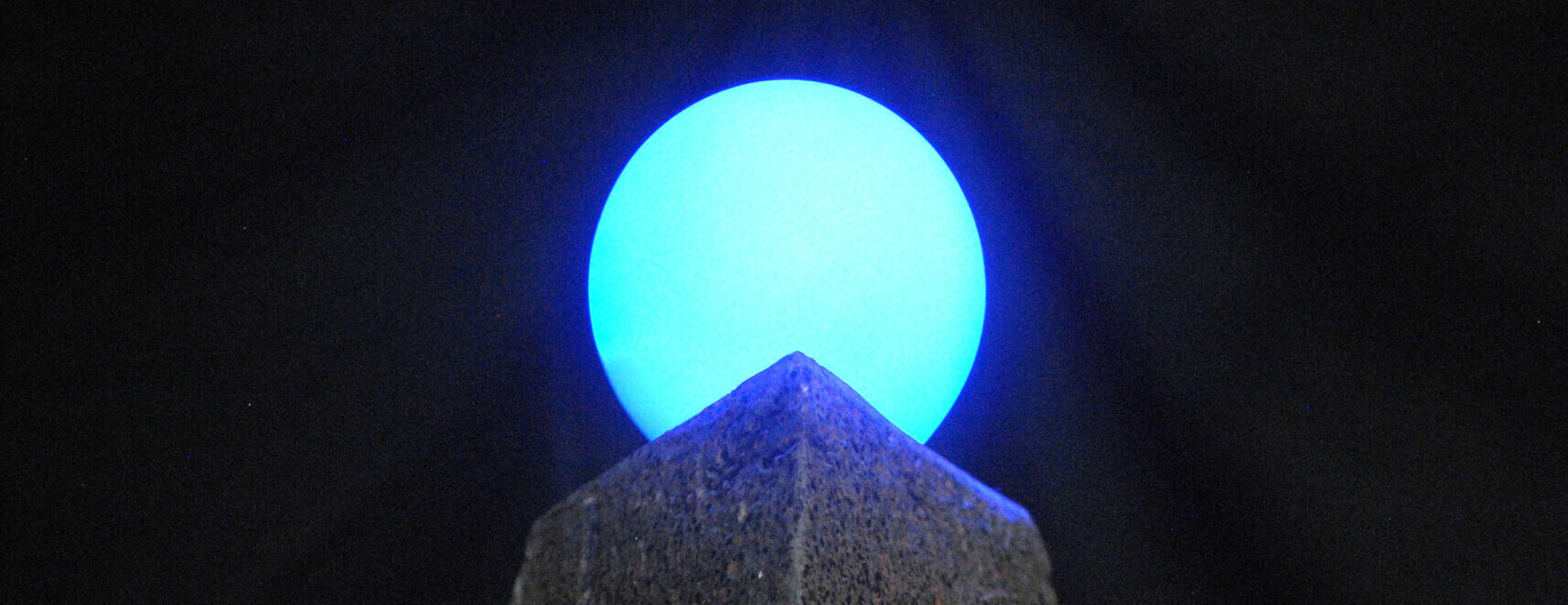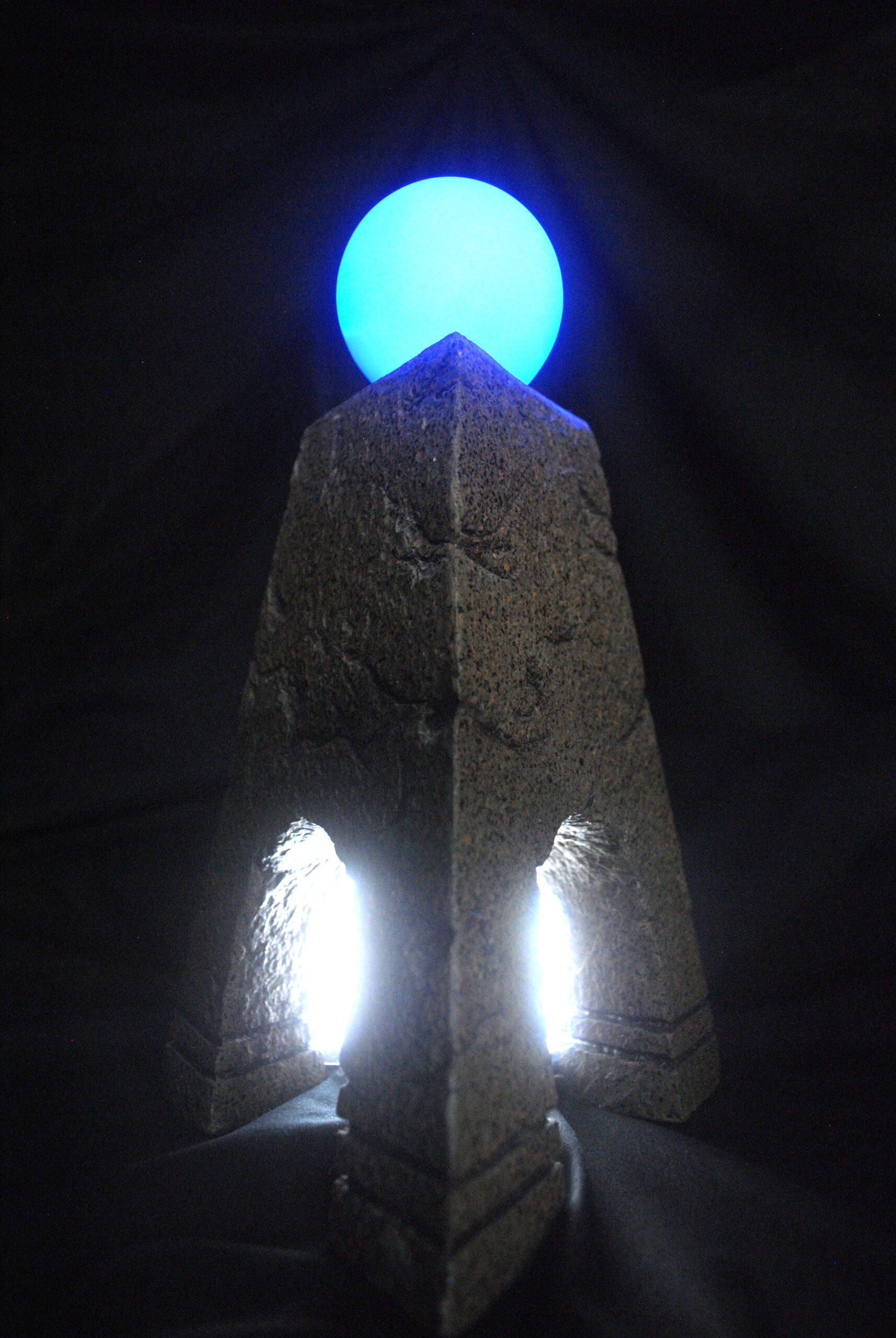Happy Birthday, Godson! You and your sisters are thought about daily. I hope you’re having a good birthday and that you’re getting everything you want and that it’s a good experience for you. We love you.
Last week marks the last of the Algorithm Interview content I had to post. But, 2024 was an odd year of growth and discovery. When I started posting this last year of content, I fully intended to illustrate the entire script as a comic. But, then I switched to this illustrated novel, and figured these early comic pages would just sit in the Algorithm Interview section. But the illustrated novel is finished, and I think there’s room for these comic pages to live in the novel. So I’ll be taking those out and inserting them into the printed book. I’m in the process of tidying things up, illustrating a few things here and there, and then it’ll be done, and I can start on the next novel “Post-Apathy”. And that’s very exciting.
I’m also doing a lot of thinking about self publishing. A lot of my career has been a lot of expecting success to just happen, and not taking action on my projects because I felt it wasn’t time, I wasn’t ready, or I didn’t have permission. Like “Oh, I can’t make that movie, I haven’t made my practice movies yet”. Or “I can’t start on that project, I need a budget”.
Comics were both the realization that I can’t wait and it was the answer to getting it done. My thoughts about publishing (self and otherwise) have fallen into the same rut of thoughts, “gotta wait till the world says okay, now it’s your turn”, “gotta wait till someone qualified says you’re good enough”.
But, there’s only a limited amount of time, and unless you’re sharing your thoughts, nobody is going to dig for them.
It makes me think about this poem I read in high school. I tried googling the user and poem, but I couldn’t find it. You can find it if you use the waybackmachine and query for poetrytetto. It was an odd website that existed in the late 90s, early 00s.
here we go
gnormal
all the people make the sparks
with ink and water railing
wailing soft as we can blare
we’re spinning fast and flailing
people decompose with love
everything we make is heat
believing that we might be warm
we burn our skin
and smell the meat
all our paintings, all these poems
photos, songs, and artful groans
tapes and logs, and stapled tomes
smoke that’s cooking our own homes
it’s all we weep, our glowing wake
we heave it when we sigh
all we are is all we make
saline across the sky
warm and red on cold and black
we leave our steaming trails
you and me are comets we
are comets with streaming tails
when you die, no one is going to look at your hard disk.
staple your poems to phone poles, wherever you go.



